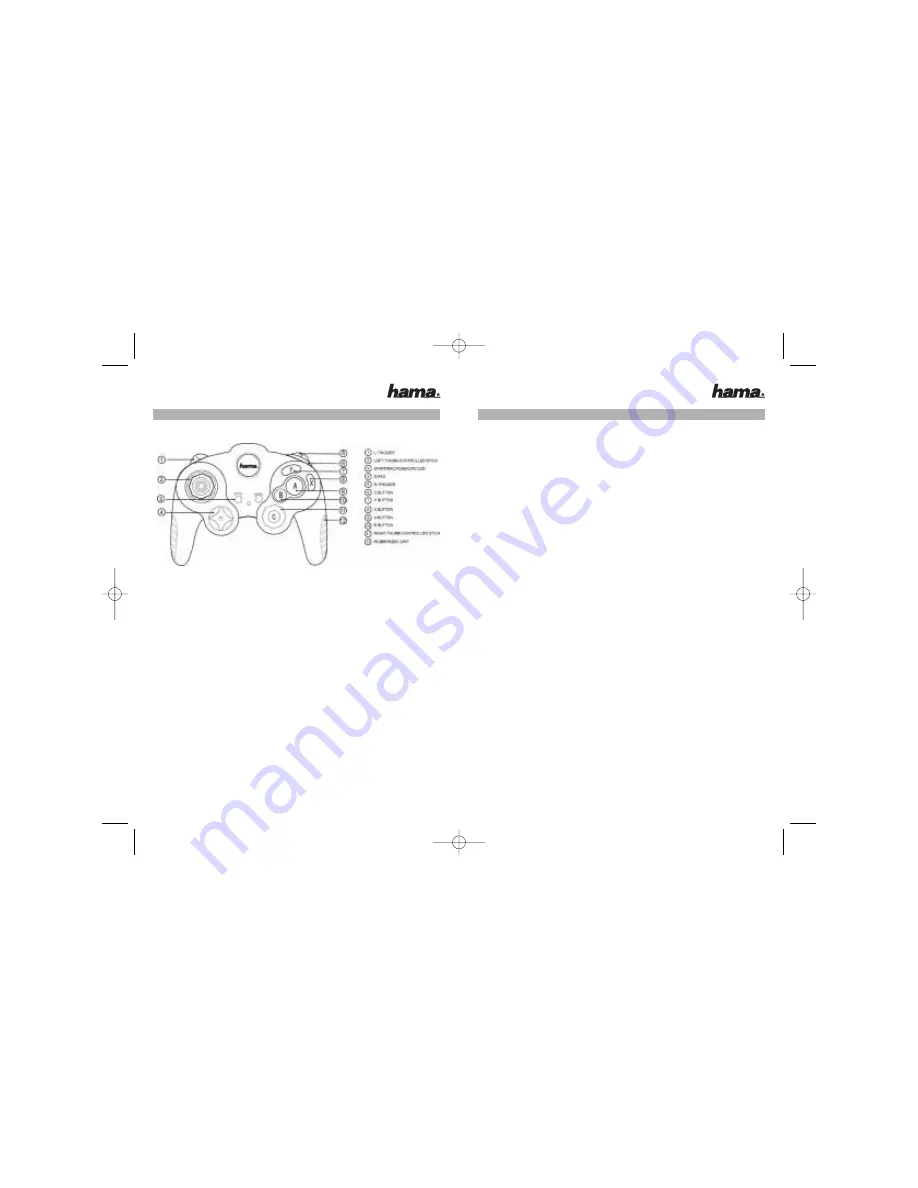
Certain buttons of the controller can be programmed. One distinguishes between pro-
grammable and non-programmable buttons. The direction pad, right-thumb-controlled
analogue sticks as well as the buttons START and MACRO are non-programmable;
they cannot be set to any function button.
Note: The Quixotic Controller must be plugged into the GameCube console so that the
buttons can be relocated and programmed; during the programming, no games are
possible.
What does button programmability signify?
The Quixotic Controller is fully programmable. This allows you to perform on demand
special and complex moves more quickly. When playing certain games (usually figh-
ting games), a combination of function buttons executes special moves for more intri-
cate attacks. The macro function allows you to execute these complicated moves by
pressing a single button.
Three buttons can be occupied for the reproduction of set macros: L-Trigger, R-Trigger,
and Z (see controller diagram). In every programmed macro, up to 32 buttons can be
pressed. Pressing buttons simultaneously counts as a single command (pressing X, B,
and A e.g. at the same time is one command, not three commands). When program-
ming a button, every button pressed is registered to the pad as 100%. Your commands
must be executed within 1.5 seconds.
Programming of the controller:
1. Press the MACRO button until the MACRO LED lights up and indicates that the
programming function is active. Note: Press the START button to adjust the
executing speed of the programmed buttons. The MACRO LED flashes at two
intervals: 0.6 sec and 1.2 sec.
2. Select the button to be programmed by pressing that button (L-Trigger, R-Trigger,
and Z) until the MACRO LED begins to flash.
3. Press the button(s) (A, B, X, Y, Z, L-Trigger, R-Trigger and left-thumb-controlled
analogue sticks) to be programmed into the button which was selected above.
Each button pressed during this step is acknowledged by one blink of the MACRO
LED.
Note:
When the maximum number of buttons for the programming (32) is
pressed, controller does not accept further inputs and the MACRO LED goes out.
4. Press the MACRO button to turn the programming function OFF when you have
assigned the desired buttons. The MACRO LED goes out.
5. Repeat the above-mentioned points to program other buttons.
Advanced Programming Techniques:
In some games, the ability to implement special moves successfully depends very
Controller Diagram:
Direction Pad
The D-pad controls the direction in which the objects move.
Analogue Sticks
The thumb-controlled sticks control two axes (X- and Y-axis). In different games you
can modify the reaction of the analogue sticks.
Function Buttons (L-Trigger, R-Trigger)
These buttons are action buttons; their specific function depends on the game being
used.
Function Buttons (A, B, X, Y and Z buttons)
These buttons are used to perform various actions, depending on the game. See the
game’s instruction manual for more details.
Start Button
This button is generally used to make selections in the menu or to interrupt the game.
See the game’s instruction manual for more details.
Macro Button
With this button you can program a complicated move requiring many buttons. You
can recall this move by pressing a single button. See point “Macro function” in this
instruction manual.
Button Programmability:
8
9
00034304bda_DIN_A6 06.06.2006 15:41 Uhr Seite 10








